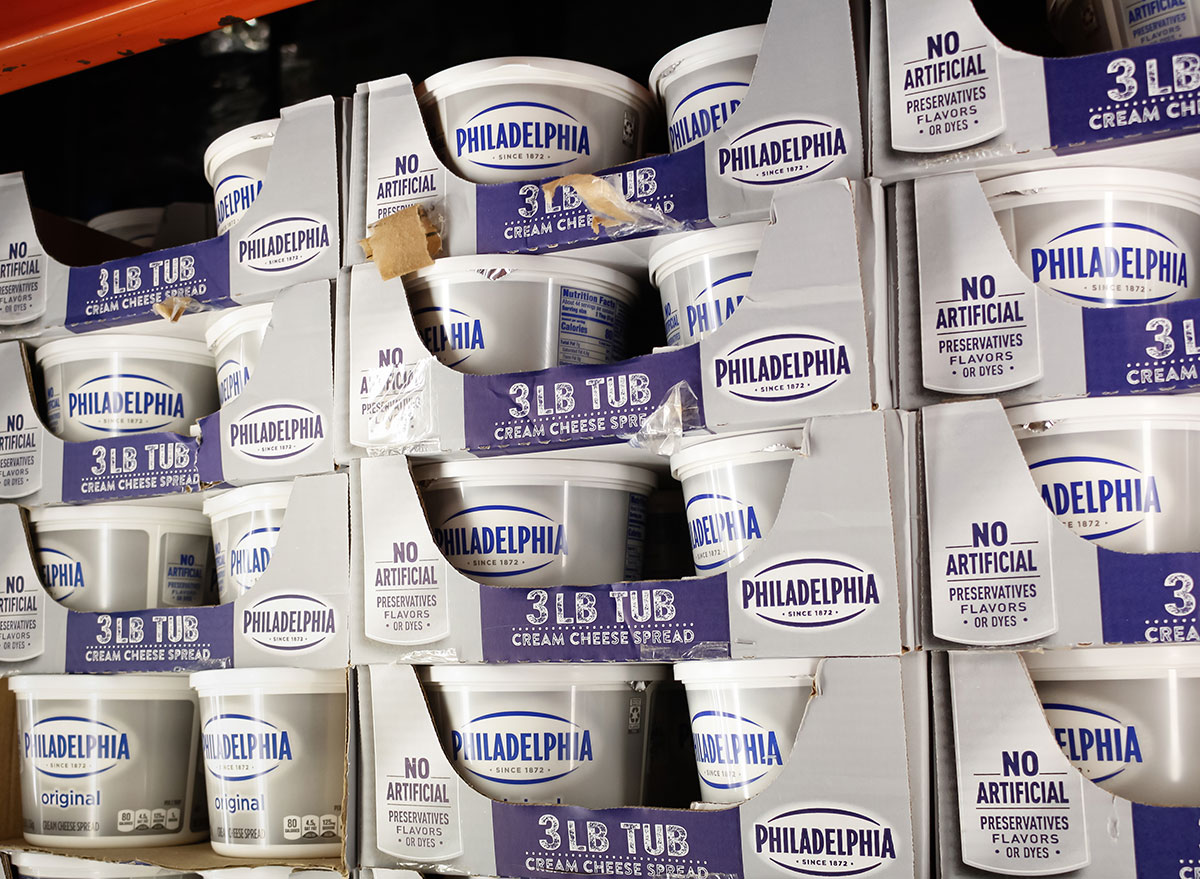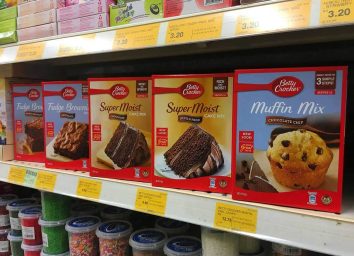These Food Brands Are Ready for a Second Wave of Stockpiling

Demand for groceries is at a heightened level again, and food companies are trying to avoid the same shortages we experienced in the spring. In order to maintain a steady supply of their products, manufacturers like General Mills, Kraft Heinz, and PepsiCo have adopted different strategies to increase and speed up their production. While no one can guarantee a shortage-proof winter, the output of several popular products seems to be high enough to meet the increase in demand.
Snacks have been an area plagued by sporadic shortages that included can’t-live-without items like goldfish. Campbell Soup Co. was met with a sudden surge in demand for the beloved kid snack during the pandemic, and have had some trouble keeping it in stock earlier this year. And while their troubles didn’t turn into a full-blown shortage, the company has allegedly spent $40 million on expanding the production of goldfish crackers in the meantime. (Related: 52 Life-Changing Kitchen Hacks That’ll Make You Enjoy Cooking Again.)
Similarly, PepsiCo has skyrocketed the production of their snack items, which are now being consumed at a rate 60% higher than normal, according to the company’s data. While they always ramp up production around the holidays, the company says their current capacity could cover the shortages of the first wave of COVID.
Frito-Lay is another snack-maker struggling with a supply capacity that was lagging behind the pandemic times. They have made a decision to pause the production of several snack lines in order to focus on their core products. As a result, you may have noticed several flavors of Lay’s chips, Doritos, and Tostitos missing from the shelves in months past.
But, according to Business Insider, the company has now resumed production of nearly all of its brands. Mike Del Pozzo, senior vice president of sales and chief customer officer at Frito-Lay North America, told the publication that the company is prepared for the new surge in grocery buying with an expanded workforce, reworked production lines, and extra warehouse space.
Another bump in the road that may have been adding to the product gaps in grocery stores was the weekly delivery schedule from manufacturers to retailers. The pandemic had turned people’s shopping habits on their head, causing shoppers to stock up mid-week as opposed to the weekend—something Frito-Lay has now taken into account with their adjusted restocking schedule.
Kraft Heinz, the company behind iconic items like Heinz Ketchup, have increased their production capacity by 20% to 56%, especially for some of their most sought-after products like macaroni and cheese and Philadelphia Cream Cheese, according to Bloomberg. Besides equipping their factories with new equipment, the company has also enlisted the help of copackers for items such as pasta sauce.
Some food brands, however, are bringing their production lines back under their own roofs to have a better handle on quality control. While General Mills Inc. added 45 external production lines through contractors this year, their Pillsbury brand has brought some of the production back in-house to ensure more long-term control over their baking mixes and related products. Whatever helps prevent another flour and baking supplies shortage, we’re all for it!
Don’t forget to sign up for our newsletter to get the latest restaurant news delivered straight to your inbox.








